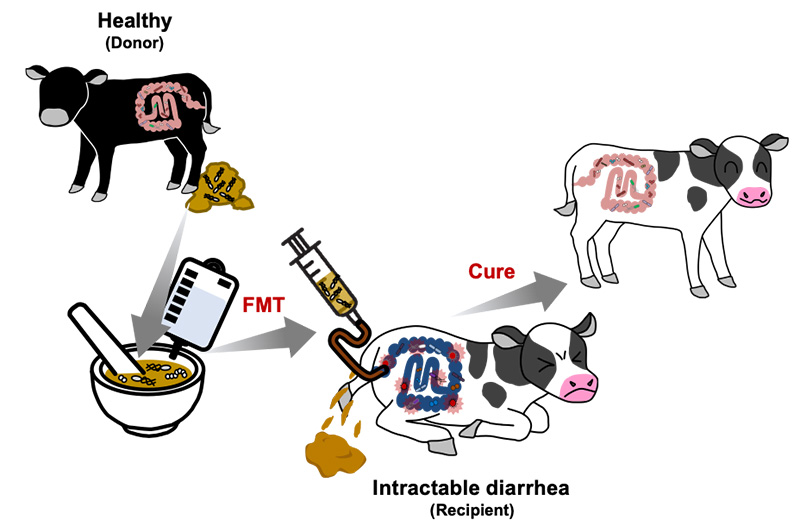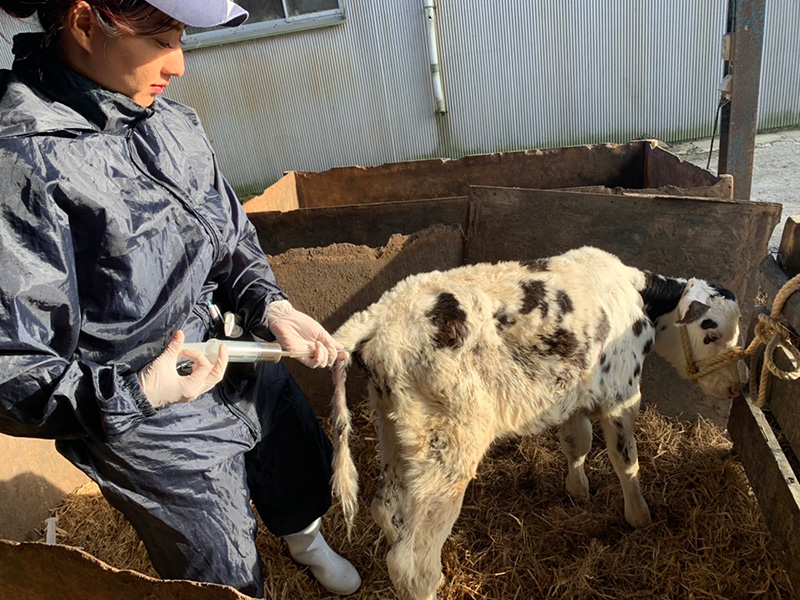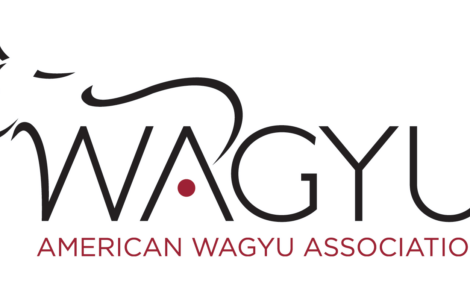



Treating Intractable Diarrhea in Calves and Improving Intestinal Microflora
Diarrhea is common in calves and causes enormous financial losses to the livestock industry worldwide.Diarrhea is common in calves and causes enormous financial losses to the livestock industry worldwide. Antibiotics have been widely used to treat this enteric disease. Yet, improper use of antibiotics for industrial animals not only disturbs their indigenous microbiome - the collection of healthy bacteria stored in their bodies - but also leads to antibiotic-resistant bacteria on farms.
A research group led by Jahidul Islam and Tomonori Nochi from Tohoku University's Graduate School of Agricultural Science and by Hidekazu Tanaka from Chiba Prefectural Federation of Agricultural Mutual Aid Association set out to promote an alternative strategy to cultivate robust microflora without using antibiotics.
To do so, they harnessed the efficacy of fecal microbiota transplantation (FMT) to treat intractable diarrhea in calves. FMT involves transplanting healthy donor-derived feces into calves with intractable diarrhea. The group was successful in predicting the fecal microorganisms and metabolites that translated into a more efficient FMT.

Details of their research were published in the journal Microbiome in February 2022.
Nochi states the project stemmed from the need to make FMT a more routine veterinary practice to improve the microbial community of calves suffering from infectious diseases.
"Veterinarians have struggled to cure calves suffering from intractable diarrhea and often resort to giving animals further inappropriate antibiotics," said Nochi.
The team's research revealed three important factors in treating animals with FMT:
- Selenomonas is a microorganism genus that shows significant donor-recipient compatibility in FMT
- low levels of several metabolites in donor and recipients prior to FMT are predicted to facilitate FMT
- genus Sporobacter is a potential biomarker in superior donor selection

"Our results provide considerable insights into the development of future microbial therapeutics for treating diarrhea in calves," added Nochi.
Reference: Islam, J., Tanimizu, M., Shimizu, Y. et al. Development of a rational framework for the therapeutic efficacy of fecal microbiota transplantation for calf diarrhea treatment. Microbiome 10, 31 (2022). https://doi.org/10.1186/s40168...


